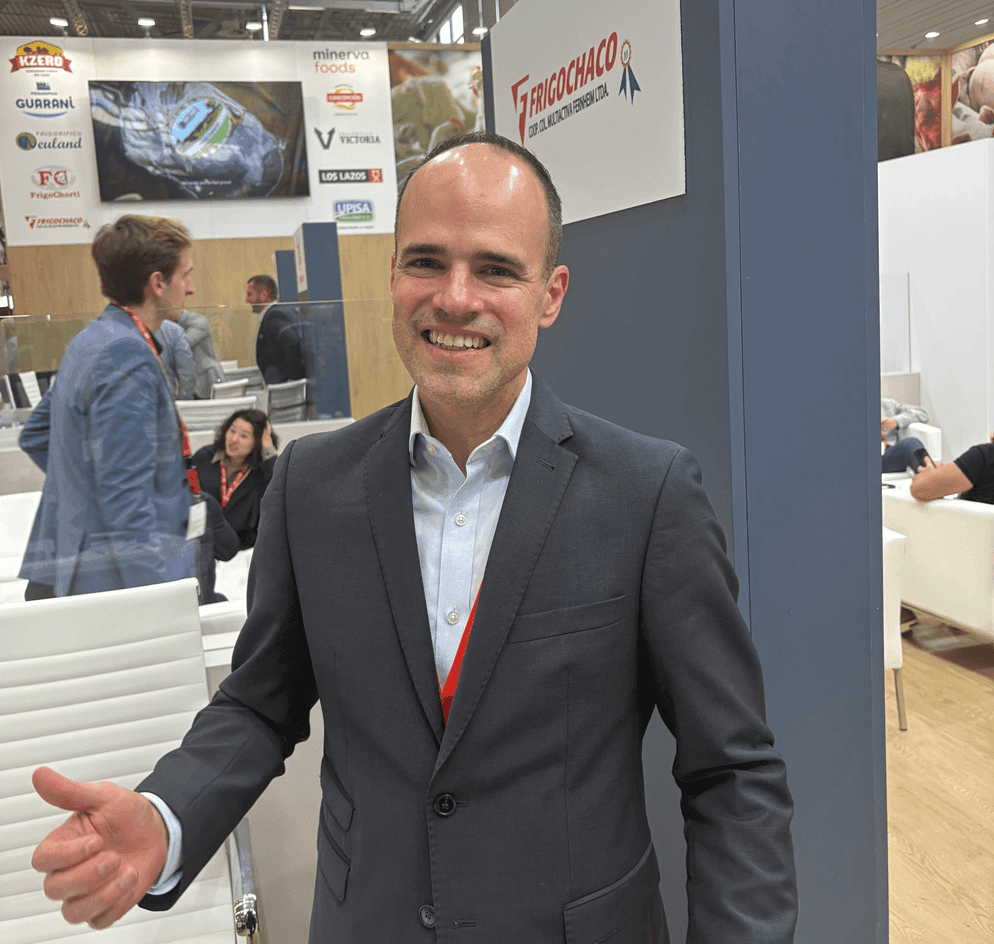“There’s strong interest in beef, but few deals: the market is expensive across the region”
Speaking with WBR from Anuga, Sebastián Wall, General Manager of Frigochaco in Paraguay, analyzed the current situation of the international beef market, the outlook for expanding into new destinations, and the impact of the regional political and commercial context.
Regarding the first days of the Anuga fair, Wall said that in Paraguay’s case there was “a lot of visits and strong interest in beef. I’m really impressed by the number of inquiries, although I must say there are few deals being closed. Prices are very high, and naturally, there’s resistance to paying them.”
The executive explained that there were even some surprises among buyer markets. “We received many requests from the Middle East and Balkan countries, but these are destinations where doing business is complicated because of the prices. Still, there were many inquiries from those regions, and it’s clear that everyone is looking for beef everywhere,” he noted.
Regarding Southeast Asia, he mentioned that although there were some visits, they were not as numerous. “They tend to attend fairs like Gulfood or events in Shanghai, China. Still, we had contacts with Taiwan and some other buyers,” he added.
Asked about the high cattle prices across the region, Wall stressed that “there is no cheap beef in Mercosur.” “I don’t know where they could find cheaper beef. Perhaps from some other origin, but within the bloc it’s very difficult. In the case of the Middle East, they turn to other proteins —not pork— but their options are limited. Brazilian poultry has a strong presence, while in Paraguay it’s not as significant,” he explained.
As for the United States, the Frigochaco executive highlighted that “until about three weeks ago, operations were flowing very smoothly, but after the rapprochement between Trump and Lula, the market has become more cautious.” “Many buyers are waiting to see what happens, although demand remains firm. If nothing drastic changes, in a week or two things should flow normally again,” he said.
On Mexico, Wall said that Paraguay expects the sanitary audit in mid-November and is confident about gaining approval before the end of the year or in early 2026. “That will allow us to continue diversifying our markets and reduce dependence on Chile,” he stated.
Looking ahead to 2026, Wall foresees a scenario of greater diversification. “Chile will likely remain our main destination, but with less relative weight. Israel is becoming more active, while Brazil, with lower prices, is gaining ground in Chile. It will also depend on whether Brazil regains access to the U.S. market. If it remains out, Paraguay will be able to take advantage of much of the third-country quota, along with a few smaller competitors from Central America,” he explained.
Finally, regarding the Israeli market, Wall said that “prospects are positive, with prices trending upward compared to last season.” “We haven’t closed deals yet, but we’re in talks with several importers. Demand is there, and so is the interest,” he concluded.
